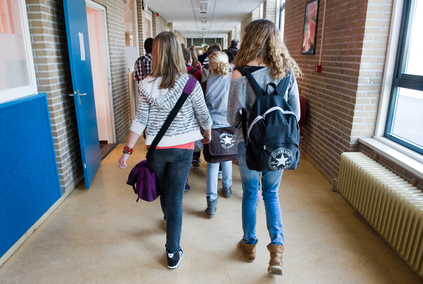Amsterdam schools increasingly segregated, different social classes rarely mix

Amsterdam secondary schools are becoming increasingly segregated and children from families with well-educated parents rarely mix with those from more disadvantaged backgrounds, according to a new report by the city council’s research department.
Pupils at one in four schools are almost exclusively from highly-educated parents, while in four out of 10 schools, children from low-skilled families make up 80% or more of the school population. For example, twice as many pupils go to schools in the districts of Centrum and Zuid as actually live in the city’s wealthiest districts, the report said.
In just eight schools is there a 50/50 split, which accurately reflects the city’s general population, the OIS statistics office said. Two years ago, 11 schools had the ‘ideal’ mix.
One reason for the segregation is the rise in single stream schools in the city. In the main, Dutch pupils are divided into pre-university (vwo), pre-college (havo) and vocational training (vmbo) streams at the age of 12 but an increasing number of schools only offer one type of education.
‘This means that children from different social classes rarely come into contact with each other,’ Amsterdam university professor Herman van de Werfhorst told the Parool. The rise of schools which only cater to pre-university or pre-vocational training streams is increasing the divisions, he said.
‘The best children go to the best schools, with the best teachers,’ he said. ‘This inequality is only increasing and no one seems to find it an issue.’
Research also suggests that children with low-skilled parents are more likely to be sent to vocational schools.
Thank you for donating to DutchNews.nl.
We could not provide the Dutch News service, and keep it free of charge, without the generous support of our readers. Your donations allow us to report on issues you tell us matter, and provide you with a summary of the most important Dutch news each day.
Make a donation